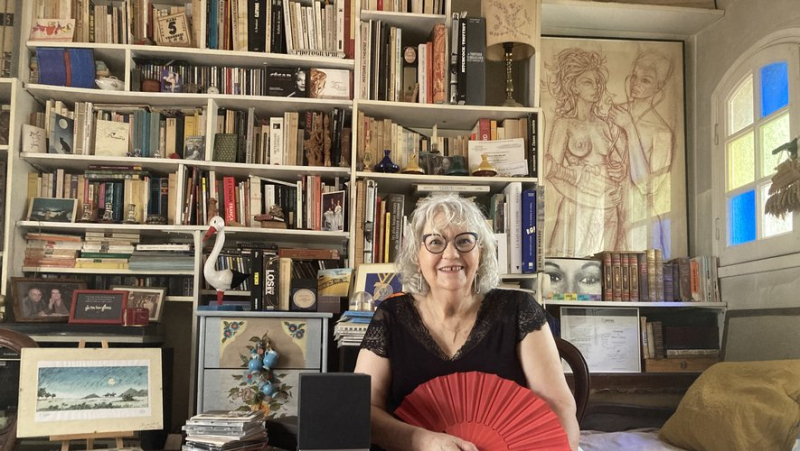In Clapiers, in her film “Our War”, the filmmaker Béatrice Malige-Dufrenne collected the testimony of the inhabitants

Béatrice Malige-Dufrenne est installée à Clapiers où elle organise un festival de films polonais.
Dans le film "Notre guerre", La cinéaste clapieroise Béatrice Malige-Dufrenne a recueilli les souvenirs des habitants sur la seconde guerre mondiale ainsi que ceux des villes jumelles du village.
Béatrice Malige-Dufrenne is not a veteran. Rather, she is a lively force, overflowing with energy. But this daughter of a soldier, born under the Oran sun, was sensitive to a request from veterans and the municipality of Clapiers, the town where she lives – and ensures the correspondence of our title. "I have always loved transmission, so when we discussed the idea of collecting the words of the inhabitants who had lived through the Second World War here in the village, I suggested making a film…"
Chief editor in cinema
In principle, Béatrice prefers fiction, or mixing it with reality. Her job as an editor in the cinema has not left her, she who became chief editor at 25, and accompanied the work of many directors and producers, first and foremost her husband, the filmmaker Jean Malige.
If editing is a form of writing, one that sets the tempo of a film, creates suspense, or manipulates the viewer, here, the cinema professional had to fit into the demands of the documentary. "I started making this film Our War in 2015, and in the middle, I made another one Making War on War, which is based on the writings of the painter Max Leenhardt and talks about the war of 14. I took up again Our War, which has the particularity of crossing the testimonies of the people of Clapiers with those of our Italian and Polish friends from the twin towns."
Roland, known as Pierrot, Dachau survivor
In the village, those who were then kids remember the Germans who settled in the school (later the town hall), René still hears the Heili Heilo sung every morning by the troupe. At 12, he who was looking after his cow had to hide when a column of Germans passed by. The village gamekeeper would lose his life with other victims in Montferrier. At the Liberation, Paulette remembers that her dad had repainted his pastière, (his cart used for the grape harvest) in blue white red. "I found the story of Roland Micheu, known as Pierrot. This STO resister who left for the Glières maquis, in the Vercors, then joined a network of resistance fighters in Montpellier, escaped arrest at Square Planchon, tried to cross into Spain and was arrested in Ariège"< /em>, says the filmmaker. Pierrot is transferred to Dachau on the death train. Freed by the allies, he returned to Clapiers in a state of physical disrepair but alive. Young girls from Clapiers recognized him in the news broadcast at the cinema on the Place de la Comédie, they are the ones spreading the good news of his survival.
In Italy and Poland
On the side of the Italians of Collelongo, when Béatrice Malige-Dufrenne accompanies a municipal delegation to the twin town, she is asked not to mention Mussolini… & ;quot;They had never testified about the war, it was a sensitive subject…" In Poland, the inhabitants of Celestynow want to remember the heroic act of scouts who in 1943 ambushed a train going to Auschwitz.
Our war draws a bridge between what ordinary citizens, plunged into the tragedy of 39-45, experienced. Shown in Clapiers only once in 2020, the film deserves to be shared again.
Polish and French Film Festival in Poland
In Poland, in Celestynow, near Warsaw, it will take place at the beginning of October: in front of young Poles, including film students, or in front of the general public, the Clapieroise presents films from the French repertoire and leads workshops. How not to show the war in The Great Illusion by Renoir ? How to film a tale withDonkey Skin by Jacques Demy ? The interest of the Poles is not waning. At Clapiers (and at the Diagonal in Montpellier) Béatrice Malige-Dufrenne is showing Polish films at the end of November.
I subscribe to read the rest




